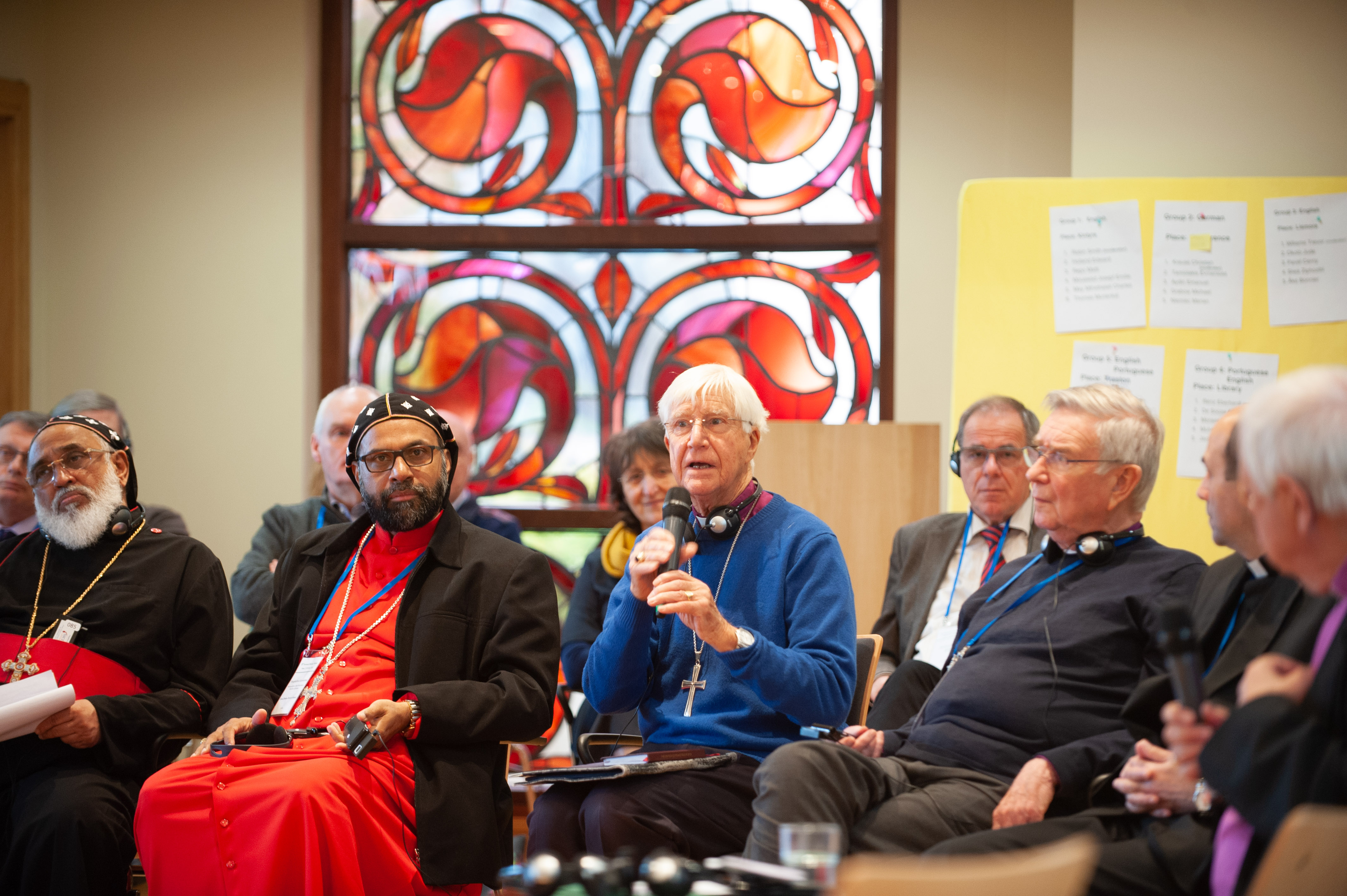 Thirty bishops from eighteen different Christian Churches and fourteen different countries were able to deepen their understanding of the Focolare spirituality of unity and to meet those engaged in peace building and ecumenical dialogue in Ireland.
Thirty bishops from eighteen different Christian Churches and fourteen different countries were able to deepen their understanding of the Focolare spirituality of unity and to meet those engaged in peace building and ecumenical dialogue in Ireland.
Bishops from across the globe belonging to many different Churches, met as ‘friends of the Focolare Movement’. They have been meeting regularly for the last 38 years in different venues to deepen their fellowship in Christ around Focolare’s spirituality of unity. This year they met at the Drumalis Retreat Centre in Larne near Belfast. Doubly significant was the place and the timing: the context of the ongoing peace and reconciliation process after ‘the troubles’ in Ireland, plus a week of uncertainty before 31st October and the possible Brexit deadline. As Brendan Leahy, Roman Catholic Bishop of Limerick and Moderator of the meeting commented, ‘The context of Brexit gave a particular edge to our gathering and highlighted issues for the participants. Dialogue with people from Northern Ireland was very valuable.’
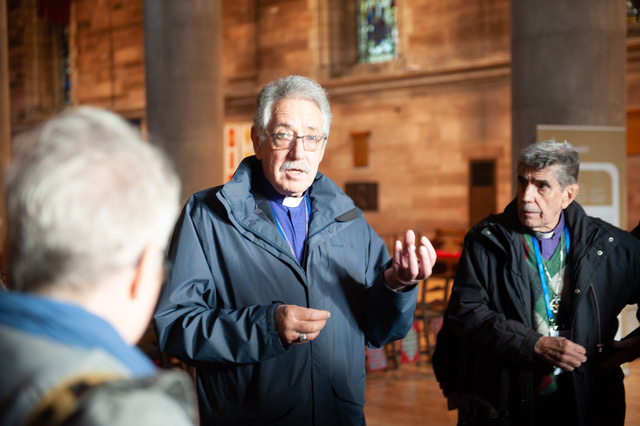 Ecumenical visits
Ecumenical visits
So apt therefore was the theme of the week ‘In a divided world, united in Christ’ exploring the unifying potential of Christ’s words, ‘Where two or three are gathered in my name, I am there among them’ (Mt. 18: 20), that the unity built and witnessed by the thirty bishops spilled over into their visits of the city of Belfast. Their first encounter was to celebrate the Lutheran Eucharist in the Presbyterian Church of Fitzroy where the warm hospitality of Pastor Stephen Stockman, the former Pastor Ken Newell and congregation brought them into contact with one of the Churches associated with peace building. For over thirty years it was the scene of an effective collaboration with the Catholic parish of Clonard Monastery (near the Falls Road), which overlooks a ‘Peace wall’. Crossing over to the East Belfast Mission of the Methodist Church at the Skainos Centre, Pastor Brian Anderson (president of the Irish Council of Churches) explained their work in that underprivileged area of the city.
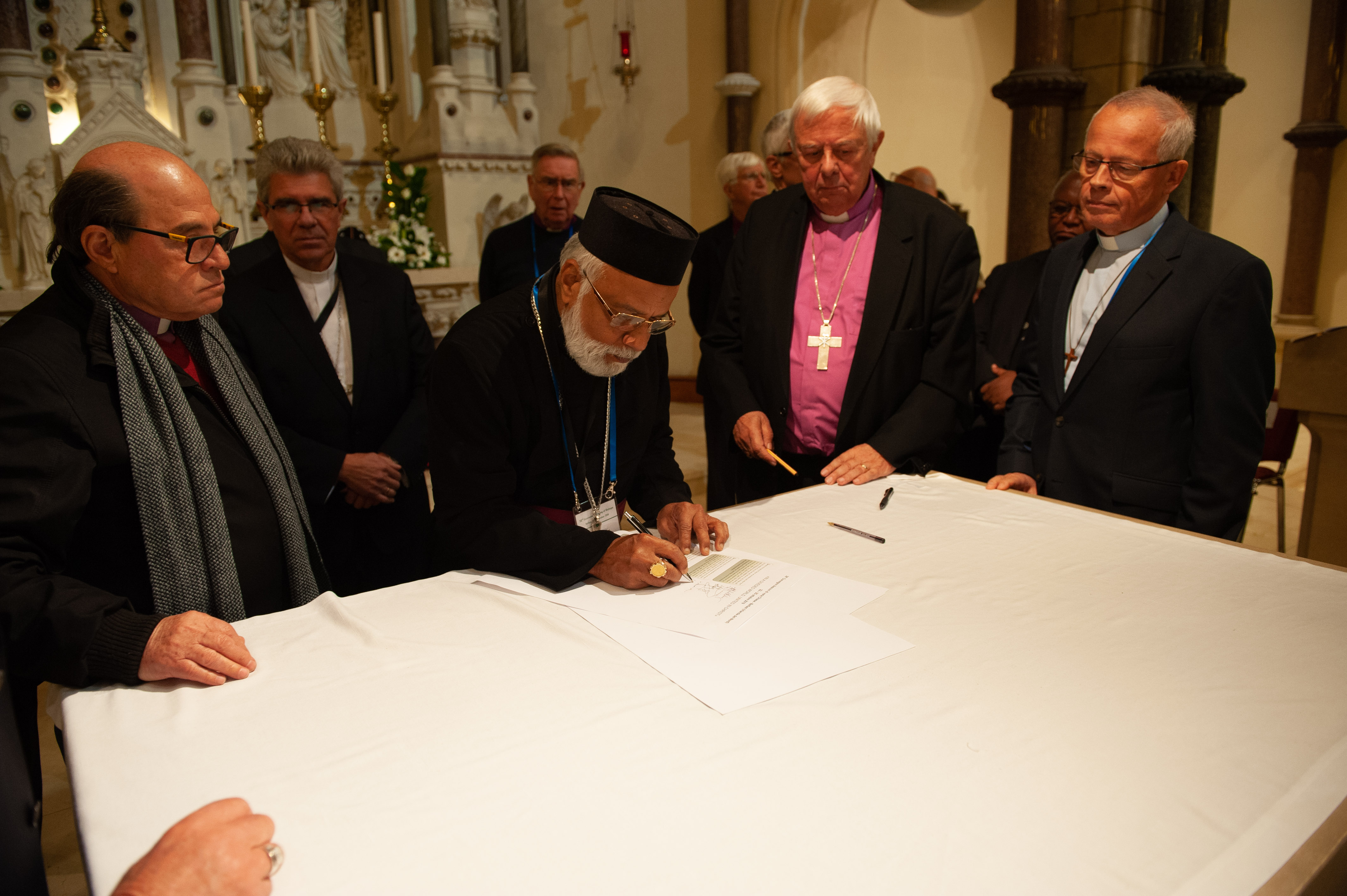 After the bishops’ participation in the Choral Evensong in the impressive Anglican Cathedral of St Anne, they walked to the Catholic Church of St Patrick for an Ecumenical service with a difference. A central part of these bishops’ meetings is the moment when they express their adhesion to Jesus’ New Commandment to love one another as Christ loved us (cf Jn 13: 34). As Methodist Bishop Daniel Siwa (South Africa) shared afterwards ‘We commit ourselves to the pact of love where we are able to share each other’s tears, pain, joy and life together.’ It is a pact sealed by the kiss of peace and the signing of personal commitment. ‘It was very moving and the unity was so tangible among them’ – one of the faithful present commented – ‘I had the impression that we were experiencing living as that one Body of Christ… because of our common Baptism.’ As Catholic Bishop Joseph Mouawad (Lebanon) underlined, in fellowship lived together, the bishops discover the life of grace in the other: ‘This pushes us to want to arrive to full unity.’ Pavel Cerny former President of the Czech Brethren, highlighted how from the perspectives on ‘Jesus in the midst’ within Orthodox, Anglican and Catholic theology, presented at the meeting, gave him greater insight into this reality. Syrian Orthodox Metropolitan Theophilose (Malankara Diocese of Europe), commented: ‘It is Jesus in our midst that transforms us.’
After the bishops’ participation in the Choral Evensong in the impressive Anglican Cathedral of St Anne, they walked to the Catholic Church of St Patrick for an Ecumenical service with a difference. A central part of these bishops’ meetings is the moment when they express their adhesion to Jesus’ New Commandment to love one another as Christ loved us (cf Jn 13: 34). As Methodist Bishop Daniel Siwa (South Africa) shared afterwards ‘We commit ourselves to the pact of love where we are able to share each other’s tears, pain, joy and life together.’ It is a pact sealed by the kiss of peace and the signing of personal commitment. ‘It was very moving and the unity was so tangible among them’ – one of the faithful present commented – ‘I had the impression that we were experiencing living as that one Body of Christ… because of our common Baptism.’ As Catholic Bishop Joseph Mouawad (Lebanon) underlined, in fellowship lived together, the bishops discover the life of grace in the other: ‘This pushes us to want to arrive to full unity.’ Pavel Cerny former President of the Czech Brethren, highlighted how from the perspectives on ‘Jesus in the midst’ within Orthodox, Anglican and Catholic theology, presented at the meeting, gave him greater insight into this reality. Syrian Orthodox Metropolitan Theophilose (Malankara Diocese of Europe), commented: ‘It is Jesus in our midst that transforms us.’
Jan De Groef a Catholic bishop (South Africa) said that in this meeting he entered into the wounds of the divided Church, but with Chiara Lubich’s understanding that it is in this suffering, embraced and transformed, we can bring new life to these situations.
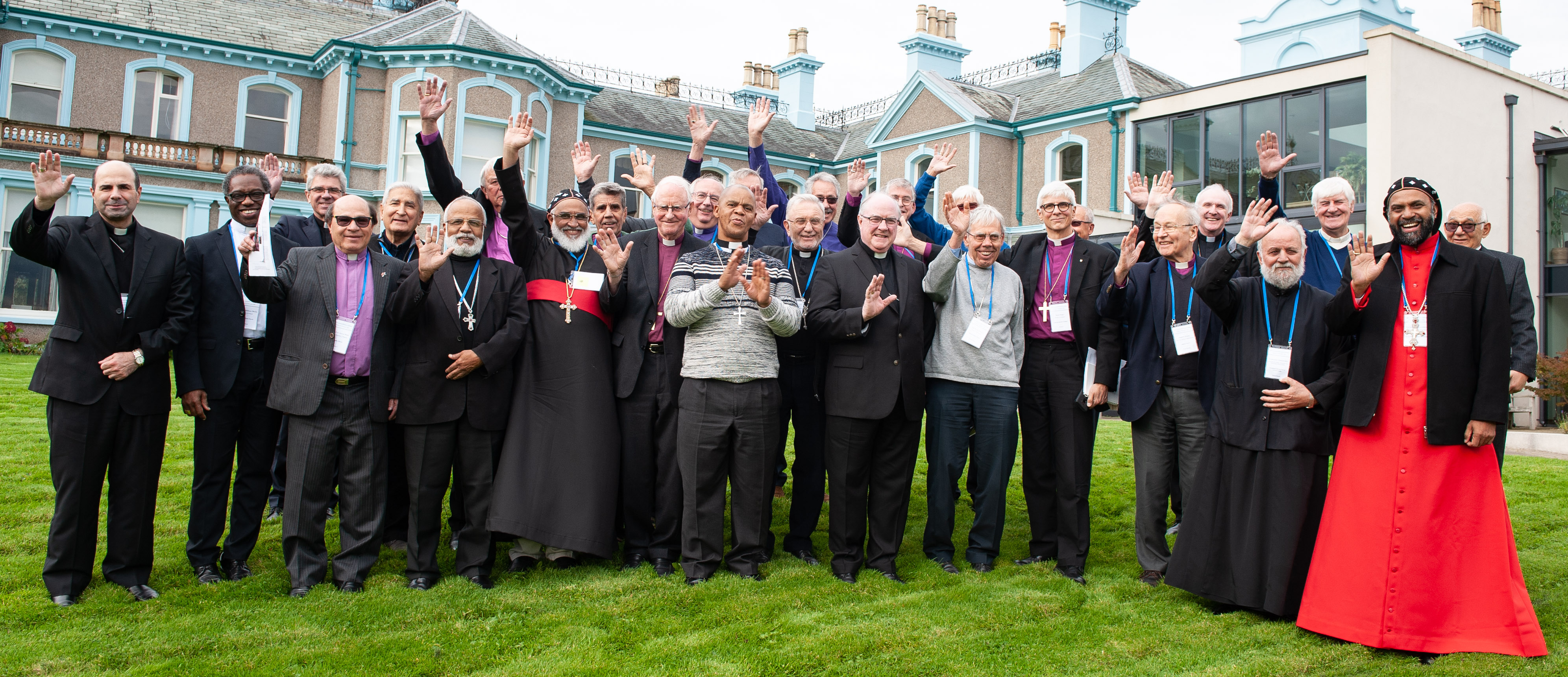
The context of Northern Ireland
Before these visits the bishops had an excellent overview of the situation of Northern Ireland from a historical, political and ecclesial prospective from Catholic Bishop Noel Treanor (Down and Connor) in whose diocese Larne is situated. Trevor Williams, former Church of Ireland Bishop (Limerick and Killaloe) gave a comprehensive and succinct history of Christianity in Ireland. Both were fundamental to the bishops’ understanding of the significance of their coming to Northern Ireland, which became even clearer at the open afternoon.
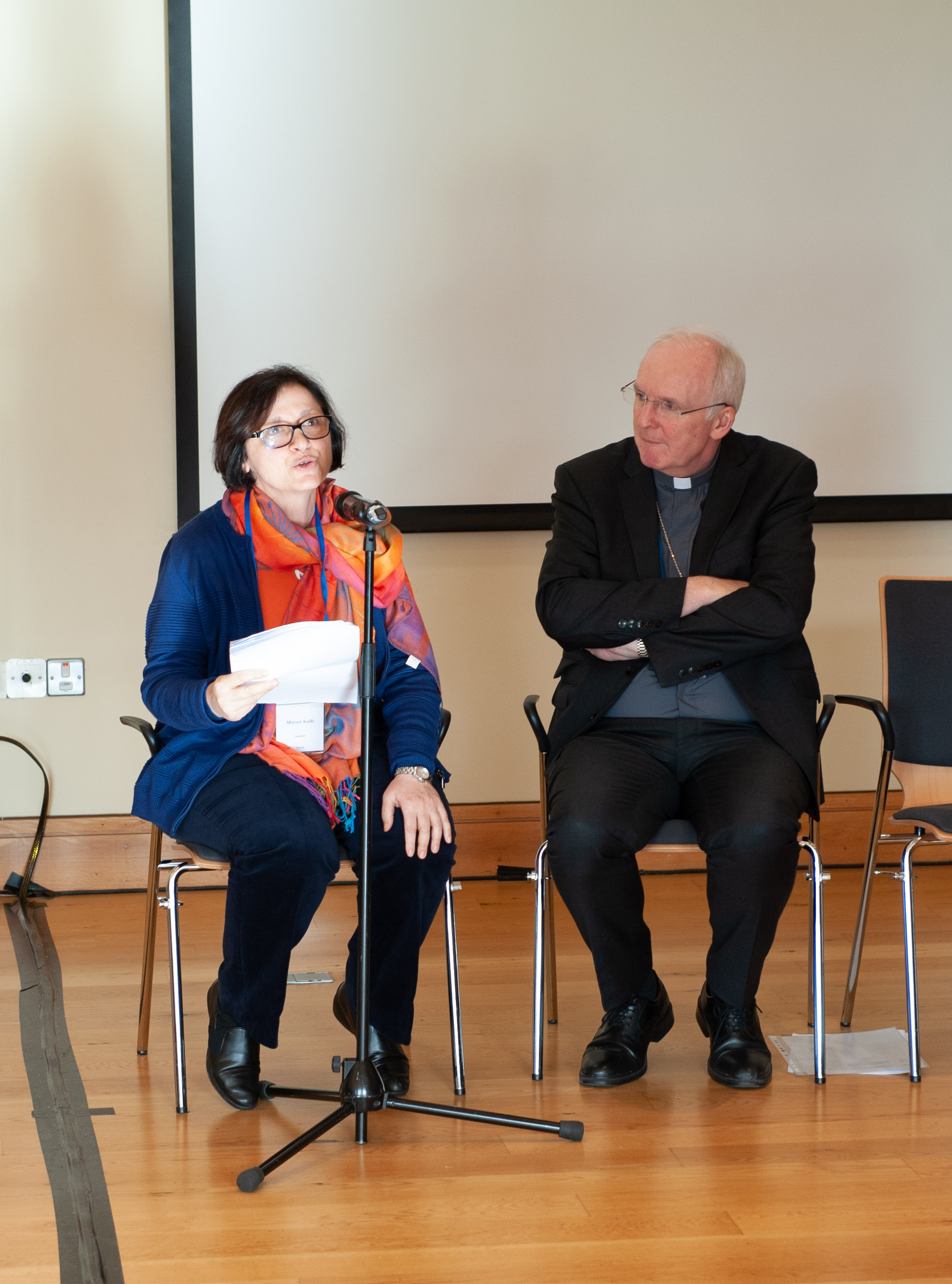 Opening out
Opening out
In fact, the open afternoon which took place in the middle of the bishop’s meeting, was without exaggeration, historical. Those who had been invited included many Church leaders and people involved ecumenically on the island of Ireland. The hall overflowed with about 140 people present, including representatives of the Irish Council of Churches, the Irish Interchurch meeting and the Dublin Council of Churches.
This open afternoon, on the one hand, was an opportunity for the bishops to meet those engaged in peace building and ecumenical dialogue in Ireland and on the other, for bishops themselves to give witness to the fruits of a ‘living dialogue’ based on Chiara Lubich’s ecumenical vision of being united by Jesus present amongst those united in his name. Further testimonies of this ecumenical lifestyle were given by Maria Wienken and Diego Goller from the Focolare international ecumenical secretariat in Rome and by the experiences of two focolarini Mirvet Kelli (Syrian Orthodox) and Mike Robinson (Anglican) who conveyed, in an enlightening way, how Focolare’s spirituality can be lived in community by Christians of different denominations.
Working in partnership
On a local level, the programme also included experiences of ecumenical collaboration. The two Archbishops of Armagh, Eamon Martin (Primate of all Ireland, RC) and President of the Irish Bishop’s Conference, together with Richard Clarke, (Primate of All Ireland, Church of Ireland – Anglican), gave a very convincing witness of ecumenical relations, paying tribute to this important style of dialogue which supports and enables theological understanding. This mirrored the witness that was continuously given by Bishop Brendan Leahy and Bishop Trevor Williams during the meeting. The Belfast Focolare together with those involved in cross community work such as the ‘4 Corners Festival’ and ‘Embrace Northern Ireland’ added weight to the ecumenical factors’ prime place in the reconciliation process in the city. Sally McAllister, originally from Belfast, gave a moving testimony of how Focolare’s Gospel based outlook changed her life during ‘the troubles’ in Belfast.
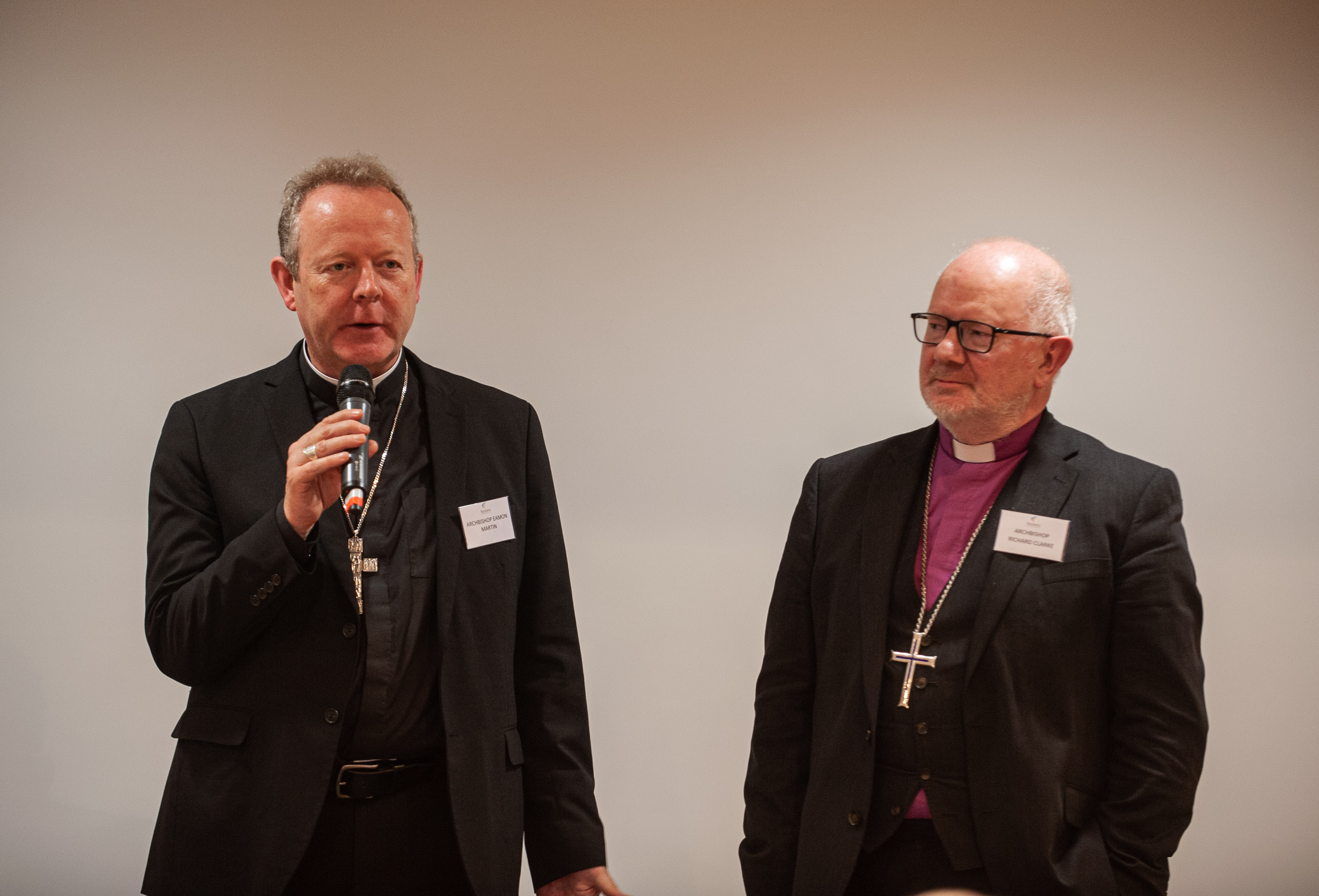 A new Pentecost
A new Pentecost
The afternoon concluded with contributions from Rev Sam McGuffin (President of the Methodist Church in Ireland), Rev Brian Anderson (President of the Irish Council of Churches), Rev Ivan Patterson (representative of the Moderator of the Presbyterian Church in Ireland). The latter, leaving his papers aside confided that he felt ‘emotional’ after such a programme and drawing on the meaning of the word ‘Focolare’, reiterated ‘do not neglect the hearth’, the family. He closed the afternoon with an encouragement to go ahead with our friendship, our work for peace and reconciliation.
The description of the event given by Rev Ken Newell (former Presbyterian moderator – Belfast) sums up the experience: ‘A new Pentecost where Christians of different Churches from all over the world were one in the Spirit, where the unity of the Church was felt… for the well-being of the world.’
The Bishops are planning to meet in September 2021 at Castelgandolfo (Rome) and as one of the coordinating group for these meetings, Christian Kruse (Lutheran Bishop – Germany), explained: ‘We want to invite bishops who feel they can sign this pact of mutual Christian love based on Jesus’ new commandment.’
After the conclusion of the meeting, the bishops visited the Corrymela Community, committed to promoting peace and reconciliation in Northern Ireland, at their Ballycastle Centre where Bishop Trevor Williams, former leader of that community, explained the significance of Corrymela in the ongoing peace process.
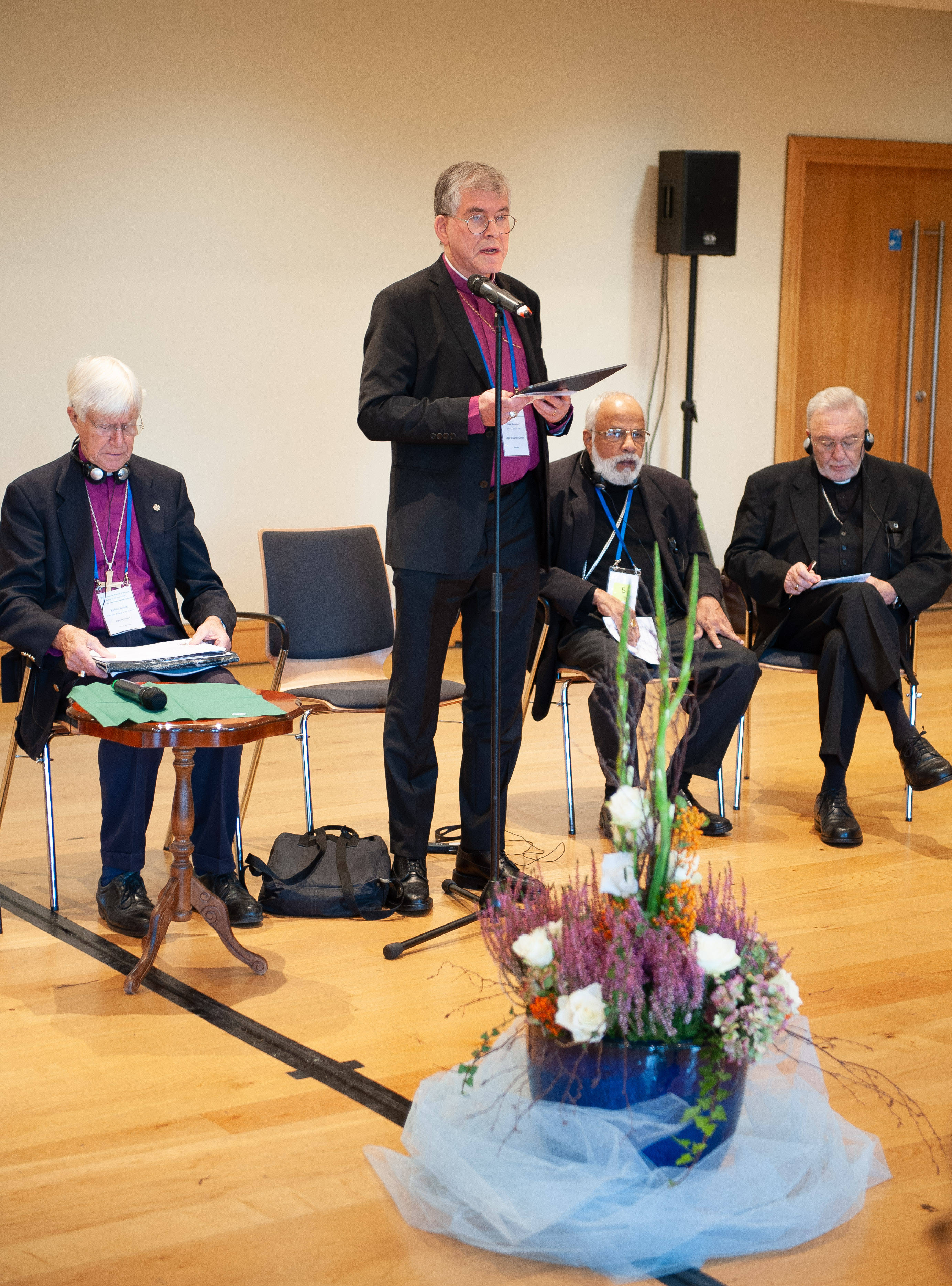 Bishop Donal McKeown:
Bishop Donal McKeown:
It was a privilege for us as local Churches in Northern Ireland to be part of such a worldwide gathering. We have our specific issues here. However, the Focolare Movement has clearly established enormous credibility across all continents and so many Churches. Christ calls us not just to manage ameliorate the effects of historical disunity but also to be apostles of unity.
Bishop Trevor Williams:
Each bishops meeting is special but it was a special blessing to welcome the bishops to Northern Ireland. It was heartening to hear their concern for our ‘unfinished business’ of peace-building and their joy at witnessing so many activities undertaken by Christians of different traditions to heal the divide. The open afternoon was a highlight. The large number of people who attended was a clear witness to the untiring and consistent work of Focolare over many years in networking and establishing friendships across the diverse Christian communities in Northern Ireland in their witness to unity. People attended the open afternoon because of their appreciation of all that Focolare stands for.
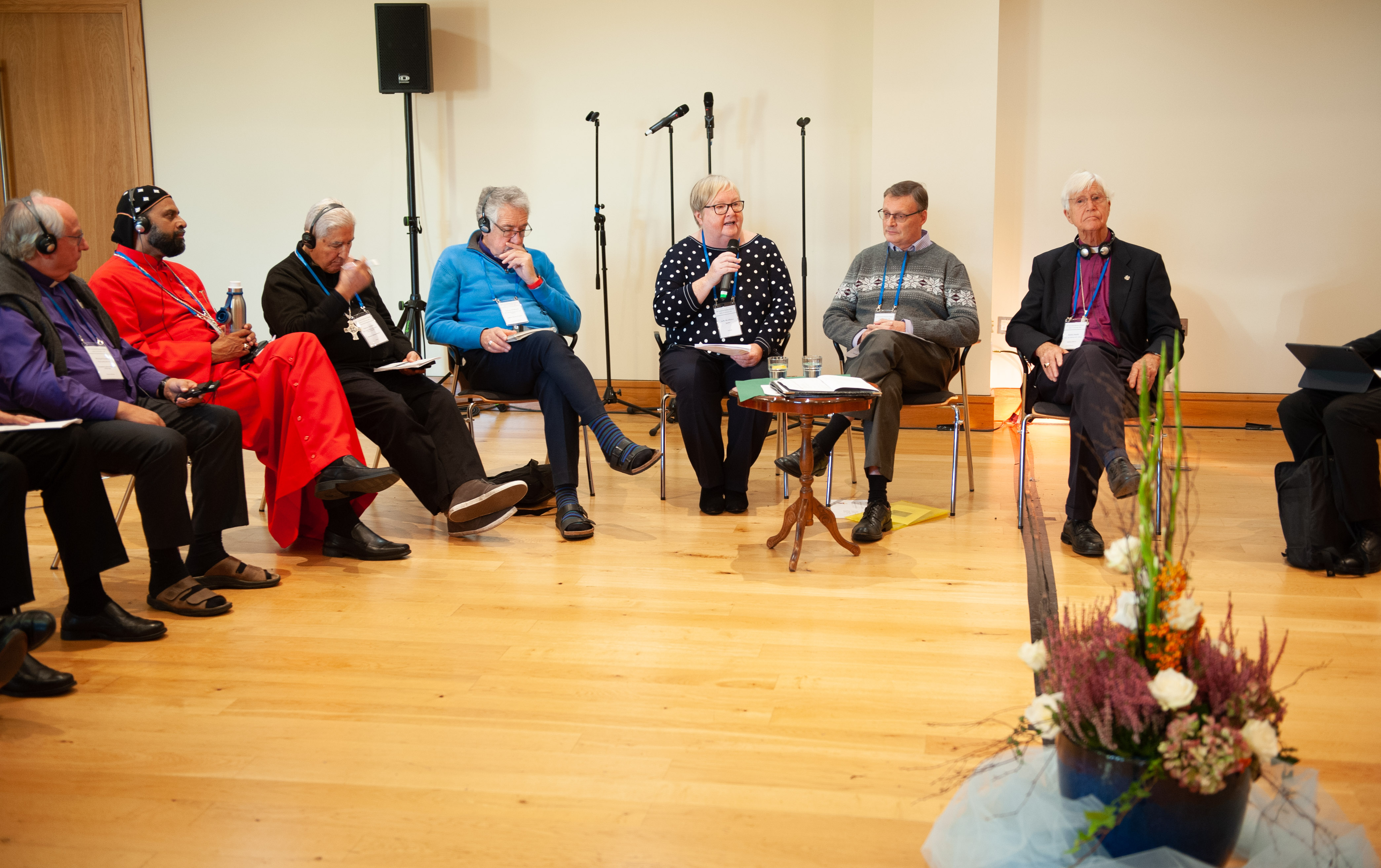 Bishop Robin Smith:
Bishop Robin Smith:
Of the 25 Bishops’ Meetings I have attended over the years this meeting in Larne, has been quite the most remarkable. Thanks largely to the dedicated preparations by the local Focolare community and to the evident friendship and mutual respect established over the years between Bishop Brendan and Trevor, the sense of the presence of Jesus in the midst was powerfully experienced from the outset. Visits into the city of Belfast, still showing visible signs of past violence, were a stark reminder of what can happen when we revert to tribalism but also the many testimonies to reconciliation and rebuilding gave us tangible signs of hope for the future.
It was striking to see how much the Focolare is known and appreciated in Belfast for its gentle, supportive contribution to various initiatives that are seeking to build bridges across divisions. The open afternoon was like an experience of the disciples on the road to Emmaus experiencing their hearts burning as Jesus among them explains and talks with them. As regards the theme, the bishop participants were struck by the phrase that ‘Jesus in the midst’ is the sacrament of the laity. They felt Jesus among them is also the sacrament for bishops!
We noted that worldwide, there seems to be a tendency to want to draw back, retrench, close in. This is in contrast with the enthusiasm and developments after the Fall of the Wall of Berlin 30 years ago. More than ever, we need to get the message out about unity, but we also need to be clear that unity is not uniformity or the denying of distinct values of cultures and peoples. For Christians, the Trinity is a great model for us. Our experience in Larne, was for us bishops, an opportunity to live this ‘unity in diversity’ that is expressed in our diversity of country, rite, tradition and background. It was a great encouragement to all.
First published by new city ○ December ○ 2019 No 539 ○ Vol 49

